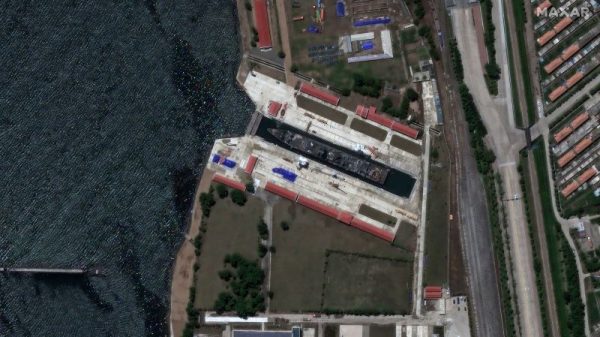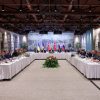North Korea has warned any potential interference or attack on its “space assets” by the United States will be “deemed a declaration of war,” the state media outlet KCNA reported on Saturday.
“The US Space Force’s deplorable hostility toward the DPRK’s reconnaissance satellite can never be overlooked as it is just a challenge to the sovereignty of the DPRK, and more exactly, a declaration of war against it,” the country’s defense ministry said in a statement reported by KCNA.
DPRK stands for Democratic People’s Republic of Korea, the official name of North Korea.
The warning came less than two weeks after Pyongyang said it had put its first spy satellite into space, in a move which analysts predicted could enable the country to more accurately target opponents’ forces, if the spacecraft works.
Neither South Korea, the United States nor Japan, all of which are experiencing increasing military tensions with North Korea, could confirm “Malligyong-1,” had made it into orbit.
Just days after the North Korean launch, the South sent its own first spy satellite into orbit with the help of space company SpaceX.
The KCNA report claimed that Pyongyang’s warning followed an alleged comment from a US Space Command official who “spouted rubbish hinting at a military attack on the DPRK’s reconnaissance satellite.”
KCNA said that the unnamed American official allegedly claimed the US “can decrease the enemy country’s outer space operation capabilities” by employing “diverse reversible and irreversible methods.”
It’s unclear who that US official may be.
Pyongyang says its satellite is for reconnaissance and “is not regarded as a space weapon by international law for its technical features aimed at observation.”
However, analysts claim the spacecraft is meant for spying and increasing North Korea’s military capabilities.
In response to the November 21 launch, the US Department of Treasury’s Office of Foreign Assets Control (OFAC) on Thursday sanctioned eight foreign-based DPRK agents “that facilitate sanctions evasion, including revenue generation and missile-related technology procurement that support the DPRK’s weapons of mass destruction (WMD) programs.”
It also sanctioned what it called a cyber espionage group called Kimsuky for “gathering intelligence to support the DPRK’s strategic objectives,” according to a statement on the Treasury Department’s website.
The November launch was condemned by North Korea’s neighbors Japan and South Korea, with Seoul calling it a “clear violation” of a UN Security Council resolution that prohibits North Korea from using ballistic missile technology.
However, Pyongyang warned that if its reconnaissance satellite is regarded as a “military threat” that “must be gotten rid of” then it should also destroy “countless spy satellites of the US flying above the Korean peninsula region every day, exclusively tasked with monitoring the major strategic spots of the DPRK.”
It also called the US “chief culprit of evils” for allegedly turning space “into a theater of war.”
Pyongyang’s move has led the South Korean government to partially suspend an agreement it had with North Korea that limited the South’s reconnaissance and surveillance activities along the demilitarized zone (DMZ) that separates the two countries.
North Korea subsequently vowed to deploy new military hardware along the military demarcation line.






































